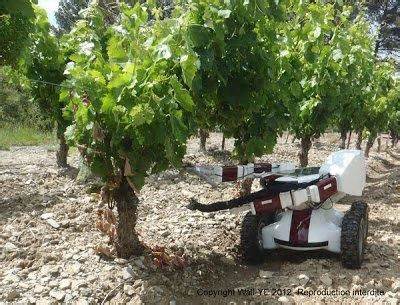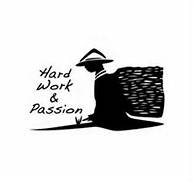 I just read a fascinating article about how a new generation of robots is being created to harvest the food we eat. There are actually a couple of reasons that I find the article so interesting. For one, I’m a total nerd and robot articles always attract my attention. The second is the economic factors that are driving this robot revolution.
I just read a fascinating article about how a new generation of robots is being created to harvest the food we eat. There are actually a couple of reasons that I find the article so interesting. For one, I’m a total nerd and robot articles always attract my attention. The second is the economic factors that are driving this robot revolution.
First let’s take a quick stroll down history lane and then I’ll wax poetic about what this new generation of agricultural robots promises us and why it is something to be welcomed, not feared.
Robots have changed the nature of work in developed countries. There is no doubt this is true. Early in the era of mechanical labor the term Technological Unemployment began to make its way throughout literature largely promulgated by people called Luddites. The idea was that robots and machines would take labor away from people leading to massive unemployment.
This didn’t happen. What happened is that horrible, nasty, low-paying, dangerous, and boring jobs that nobody wanted to do anyway were eliminated. In the information age we have elite, intelligent, well-trained, and well-paid workers capable of contributing to business growth. This is not a good thing, this is a great thing. This, naturally, requires an elite and educated workforce. Thus people who are not educated risk losing their livelihoods and this is a problem that I discussed in two other posts about the Shrinking Middle Class and the Broken Social Contract.
What I want to discuss today is the connection between cheap, abundantly available labor and wealth. When industry can employ a large number of people at an extremely low wage it is not good for society. It appears good for the business owners but the reality is that people who have little or no hope for economic advancement drain society in a number of ways. They largely pay no taxes, require government subsidies, have way too many babies, and commit most of the crimes.
The United States until recently had a huge surplus of migrant farm workers. Food producing companies employed them often at below legal wages and had no need for innovative robots that could save time and money. A couple of factors changed this. The economic down-turn and stiffer laws against illegal immigration resulted in fewer workers being available to harvest our crops.
The result is an explosion of innovation in produce picking equipment that can do the job more quickly, better, cleaner, more safely, and cheaper than workers. This technology has been long stifled because of cheap labor. People doing backbreaking jobs for minimal wages. The robots aren’t quite ready yet; machines have difficulty picking ripe fruit, avoiding bruising, and otherwise replacing people but change is coming.
My father tells the story of the summer in St. Louis he was a weeder at the Forest Park Golf Course. Basically he went out and picked weeds. If we could still get away with paying hoards of kids almost nothing to do a miserable job then they would still be out there. It’s good that we have machines to do it for us. Good for kids who now get a better job at a better wage during their summer vacations and good for employers in that the weeding gets done more efficiently and cheaper, and good for society in that people have more disposable income.
Cheap labor is bad for everyone. If people aren’t forced to find a better way, they often don’t. The world is changing. The information age is just beginning. There is a bright future for humanity awaiting us. A future where educated people actively take part in their line of work contributing not just in menial ways. A future where productivity occurs at a phenomenal rate, where every employee is well paid and happy. Where we go home at the end of the day having accomplished something and we feel good about that. Where robots do all the nasty jobs that no one really wanted, they just did it to feed their families. This is a my vision of the future.
My favorite quote in the original article was from farm workers talking about how bad mechanization will be for consumers: The fundamental question for consumers is who and, now, what do you want picking your food; a machine or a human, who with the proper training and support, can take significant steps to ensure a safer, higher quality product.
My answer? Robots!
Tom Liberman
Sword and Sorcery Fantasy with a Libertarian Twist
Current Release: The Sword of Water ($2.99 for 300+pages of fantasy goodness)
Next Release: The Spear of the Hunt
 While my legion of loyal followers knows me as a prolific blogger and author of stupendous Sword and Sorcery novels I’m not ashamed to admit that neither one of those endeavors pays the bills. I’d like for my novels to become best-sellers and box-office blockbusters but, as of this moment, what allows me to live comfortably is my job at
While my legion of loyal followers knows me as a prolific blogger and author of stupendous Sword and Sorcery novels I’m not ashamed to admit that neither one of those endeavors pays the bills. I’d like for my novels to become best-sellers and box-office blockbusters but, as of this moment, what allows me to live comfortably is my job at